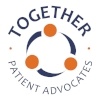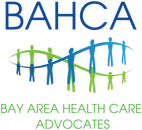 The recent death of 43 year-old actor Chadwick Boseman is raising much needed awareness about the rise rates of colon cancer among young adults.
The recent death of 43 year-old actor Chadwick Boseman is raising much needed awareness about the rise rates of colon cancer among young adults.
What is Colon Cancer?
Most colon cancers start as pre-cancerous polyps on the inner lining of the colon. If left alone, they become cancerous and grow into the wall of the colon and then spread outside of the colon to the liver, lungs, brain, lining of the abdominal cavity and lymph nodes.
The Rising Number of Cases Among Younger Adults
A study led by the American Cancer Society revealed some alarming statistics about the rise of colon cancer in younger adults:
- While overall rates of colon cancer have been declining, the numbers doubled in the 20 - 39 year age range (from 1% to 2%) and the 40 - 54 year age range (from 0.5% to 1%).
- The study's researchers also noted that people younger than 55 are 58% more likely than older people to be diagnosed with late-stage disease “…largely due to delayed follow-up of symptoms…because colon cancer is typically not on the radar of young adults or their providers.”
Dr. Roberta Siegal, one of the researchers, said that late-stage diagnoses are due, in part, to “the embarrassment factor .” People are reluctant to say, “I’m bleeding from the rectum.”
There is absolutely no need to be embarrassed when talking to your doctor. Physicians are not going to judge you based on your bowel issues, just as they wouldn’t judge you based on your chest pains. Think of your doctor as your “body mechanic.” She is trained to hear whatever you have to say with the goal of reaching a diagnosis and treatment plan – not to judge you. She won’t be embarrassed, and neither should you.
Screening Guidelines
Due to rising rates of colon cancer in younger adults and the knowledge that earlier diagnoses save lives, in 2018 the American Cancer Society lowered the recommended starting age for colonoscopies from age 50 to age 45 for people of average risk.
You are at “average risk” if you:
- Do not have a family history of colorectal cancer
- Do not have a personal history of:
- colorectal cancer or certain types of polyps
- inflammatory bowel disease (ulcerative colitis or Crohn’s disease)
- getting radiation to the abdomen (belly) or pelvic area to treat a prior cancer
- a confirmed or suspected hereditary colorectal cancer syndrome, such as familial adenomatous polyposis (FAP) or Lynch syndrome (hereditary non-polyposis colon cancer or HNPCC)
Warning Signs
According to the American Cancer Society, the most common signs and symptoms are:
- A change in bowel habits, such as diarrhea, constipation, or narrowing of the stool that lasts for more than a few days.
- A feeling that you need to have a bowel movement that is not relieved by doing so.
- Rectal bleeding.
- Dark or bloody stools.
- Cramping or belly pain.
- Weakness and fatigue.
- Unintended weight loss.
Self advocacy is important here. It's not uncommon for physicians to attribute rectal bleeding in a younger person to hemorrhoids without further evaluation to rule out colon lesions. Discuss with your doctor whether further evaluation is warranted in your situation.
Lower Your Risk
The exact cause of colon cancer is unknown, but the American Cancer Society says you can lower your risk by:
- Eating a lot of dark green, red, and orange vegetables; fruits in a variety of colors; and whole grains.
- Eating less beef, pork or lamb and processed meats like hot dogs and lunch meats.
- Getting regular exercise.
- 150-300 minutes per week of moderate intensity activity or 75-150 minutes per week of vigorous intensity activity, or an equal combination. Click here for a list of moderate and intense activities. Avoid sedentary activity.
- Stopping smoking, if you currently smoke.
- Limiting alcohol by drinking no more than two drinks per day for men and one a day for women.
- Maintain a healthy weight.
Insurance Watch-outs
Not surprisingly, insurance coverage for colon cancer screening depends on several factors, beginning with what kind of insurance you have. For example, private insurance plans cover the cost of a polyp removal as part of the colonoscopy screening. However, Medicare will charge you a co-insurance or co-payment fee for the cost of polyp removal. Click here for an overview what is and is not covered under Medicare, Medicaid, and most private insurance plans.
Once you know the type of screening test your doctor plans to do, call your insurer before the test to ask:
- If the test is covered
- If the provider is in-network
- How much you would have to pay for the test
- What additional charges, if any, you will have to pay if a polyp is found and/or removed during the colonoscopy
- How much the insurance will pay
Write down the answers then read them back to the insurance representative to make sure they are correct. In your notes also include the name of the person you spoke with and the date and time of your call. That information is critical if you end up with a surprise bill that you need to challenge.
Take these precautions, from healthy diet and exercise to regular screenings and candid conversations with your physician, to stay as healthy as possible.



.gif?width=200&name=NAHAC-Member-Badge200x112+(1).gif)


